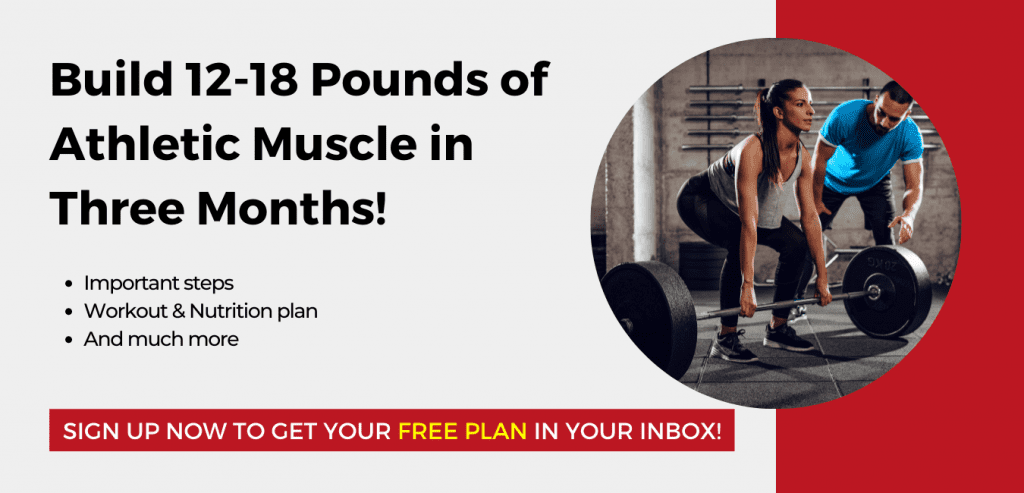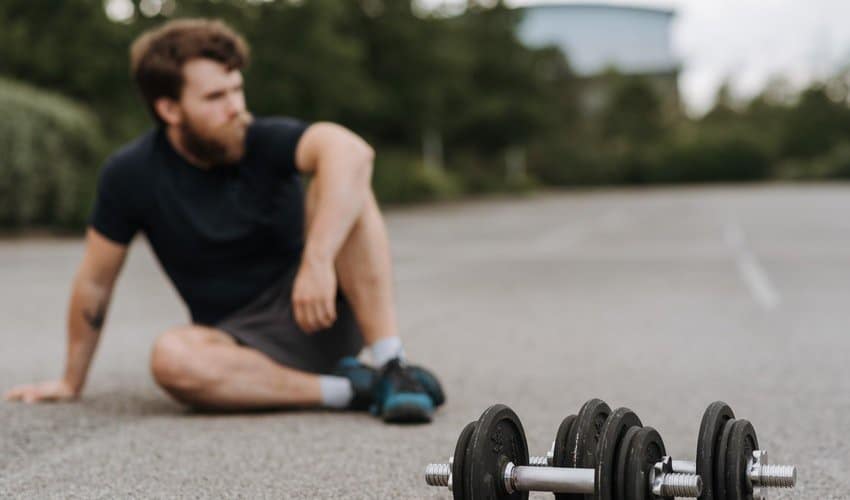Doing the right things after a workout is crucial when it comes to maximizing your workout results.
Whether you’re trying to build muscle or lose fat, the workout is just half of your job. In addition, you have to do certain things after your workout to maximize recovery and speed up your progress.
These things can range from eating the right foods and taking specific supplements to boost your recovery and strength.
However, there are very common mistakes that you might be making at the end of your workouts which literally can kill your progress; even you’re consistent with your workout and diet.
In this article, we’ll go over what to do after a workout and what not to do after a workout to maximize your recovery and bring your goals one step closer to you. So, let’s begin!
What to Do After a Workout: 10 Things to Do

Whether you’re losing fat, gaining muscle or want to reduce muscle soreness, try the following things after your workouts to maximize your results.
General Things to Follow
1. Get Hydrated
After finishing your workout, the first and most important thing you should do is drink enough water because it’s essential for your health and also crucial to see results.
Staying dehydrated can slow down muscle growth by lowering muscle protein synthesis while raising muscle protein breakdown rates.
And since our muscles are made up of about 79 percent water, it makes sense to stay well hydrated.
Studies also found that just a 5 percent dehydration can significantly reduce testosterone production after a workout while increasing cortisol levels, which can hurt your fitness goal.
So, make sure you’re hydrated well after your workout. You can achieve this just by drinking one or two glasses of water after your workout.
2. Cool Down Properly
Properly cooling down your body after workouts is as important as warming up before the workout.
Because, when we are working out, our heart rate and blood pressure are gradually increased, but when we suddenly stop exercising (specifically cardio), our heart rate and blood pressure are rapidly drop and can cause make you feel dizzy or headache.
For example, when you’re doing high-intensity aerobic exercise (like treadmill running) and suddenly stop moving, you’ll probably feel dizzy or still moving.
So, don’t forget to cool down your body after exercise, which also helps to reduce muscle soreness. Your cooldown routine should be like a lite walk or jog for about 5-10 minutes.
3. Change Clothes and Shower
After a workout, you should definitely change your clothes and shower. Because if you don’t change your sweaty clothes and take a shower after your workout, it can cause fungal and bacterial infections.
And also, not showering after a workout can cause acne because it increases oily substances known as sebum, and dead skin cells will clog your hair follicles, leading to acne.
Taking a cool shower is also known to reduce muscle soreness after workouts, and it feels great actually. So, changing clothes and taking a shower are excellent things you can do after your workouts.
To Build Muscle
4. Add Creatine
If you are looking for something to take after your workout to boost muscle size, creatine should be one of the top choices.
Most of us already know that plenty of studies show creatine is one of the most well-researched and safe supplements to improve strength and muscle size.
But what most of us don’t know that creatine can also reduce muscle damage and soreness, as shown by a study published in the European Journal of physiology.
Creatine can be a great post-workout supplement to minimize muscle soreness. Studies show that creatine is most effective in improving athletic performance and physical appearance when taken after exercise instead of before.
Taking about 5 grams of creatine after a workout is perfect for improving strength and building muscle.
Related: The 7 Best Creatine Supplements on the Market
5. Prioritize Protein
Protein is the most important macronutrient to eat after exercise because it’s essential for reducing muscle breakdown and increasing muscle protein synthesis.
A 2016 study shows that taking 20 grams of high-quality protein (like whey) after a workout can significantly increase muscle protein synthesis.
However, researchers also found that increasing the amount of protein to 40 grams of whey protein also increases the muscle-building rate by 20 percent.
So, to maximize your muscle-building rate, you can aim closer to 30-40 grams of high-quality protein source after your workout.
Related: The Best Muscle Building Supplements on the Market
6. Provide Enough Nutrients
Feeding our body with nutrients after a workout is crucial when it comes to gaining healthy weight. Because after a workout, it needs nutrients to refuel the body and start repairing and recovering muscle tissues that broken during exercise.
How can you achieve this?
Simple, by just giving your body enough protein and carbs. Protein helps to reduce muscle breakdown and increase muscle protein synthesis, while carbs help quickly replenish the energy.
Related: 30 Best Muscle-Building Foods to Include in Your Diet
So, after a workout, your aim should be to eat around 20-40 grams of both carbs and protein to quickly refuel the body and increase muscle protein synthesis.
Make sure you choose a fast-digesting high-quality protein source like whey protein or egg whites, and for carbs, you can go for fruits like banana or pineapple.
Related: The Best Foods to Eat After a Workout
To Lose Weight
7. Don’t Skip Your Meal
When we are on a fat loss diet, some people may assume that skipping a meal may help weight loss. But the truth is it can’t. Because to lose weight, we have to consume fewer calories than we use.
It does not make sense to skip one or two meals while eating too many calories (like junk or processed foods) in the other meals. So, don’t skip your meals, especially the post-workout meal.
A post-workout meal is the most important for replenishing the energy and getting our workout results fast. A good amount of carbs and protein is perfect in the post-workout.
So, make sure you’re eating fewer calories than you burn, and the calories you consume are come from a healthy source to lose weight healthily.
Related: 10 Best Post-Workout Snack Ideas to Lose Weight
8. Choose Foods Wisely
When we’re trying to lose weight, we have to be specific while choosing foods because we can’t consume many calories at a time.
As I mentioned before, our body needs some protein and carbs to refuel the energy and start muscle recovery after a workout.
You can look for protein sources like egg whites, chicken breast, whey protein, and for carbs, you can go for foods like oatmeal, sweet potato, banana, etc.
Related: 20 Best Foods to Eat After an Intense Workout
To Reduce Muscle Soreness
9. Contrast Therapy
Contrast therapy is one of the most effective ways to reduce post-workout muscle soreness and improve muscle strength.
In contrast therapy, you expose a limb or entire body to a hot temperature for some time. Then, you immediately switch to a very cold temperature for a period of time, and you repeat this process several times.
A 2013 study found that contrast therapy led to greater improvements in muscle soreness and strength compared to other methods, including cold-water immersion, warm water immersion, compression, active recovery and stretching.
This therapy also reduces muscle inflammation, improves mobility and muscle range of motion.
How can you perform contrast therapy?
The easiest way you can start contrast therapy is by switching between a very cold and hot shower. You can switch by doing each of one or few minutes for a total of 10 minutes.
However, the other way you can do it by using a combination of a sauna and an ice plunge. First, warm up your body by staying in a sauna for a few minutes, then immediately switch to the ice plunge, which is basically cold water.
10. Tart Cherry Juice
The next thing you can do is instead of taking sports drink, drink some tart cherry juice because it’s known to great in reducing post-workout muscle soreness.
Tart cherry juice contains a group of substances called flavonoids and anthocyanins that provide antioxidant effects in our bodies.
Many studies show that consuming tart cherry juice after a workout reduces muscle protein breakdown and muscle soreness while speeding up muscle recovery. (1, 2, 3)
Another study found that consuming tart cherries before and after resistance training can positively affect hard-working muscles and help in strength gain.
So, consuming tart cherry juice along with some protein sources can be a perfect post-workout meal to reduce muscle soreness and increase muscle protein synthesis.
11. Starching
According to several studies, post-workout starching is a great way to reduce muscle soreness and maximize the body’s muscle-building potential. (1, 2)
Especially static stretching is mainly preferred in the post-workout. It’s a time-honored type of stretching where you hold a specific muscle group for at least 15 to 20 seconds.
Although this is a conflicting topic on studies, many studies show that post-workout stretching often has positive effects on muscle soreness and decreases muscle tension in the body.
So, it would be best to properly stretch your trained muscles after a workout to reduce muscle soreness and maximize its capacity to put on more muscles.
12. Foam Rolling
Foam rolling after your workout is another excellent way to reduce muscle soreness and create more space for loading new muscle mass.
Multiple studies found that foam rolling after a workout can greatly improve your range of motion, muscle recovery, and performance because foam rolling increases the blood flow to the targeted muscles. (1, 2)
For example, studies found that athletes who foam rolled their hamstring after performing heavy deadlift workouts experienced less muscle soreness during the following days than the athletes who didn’t foam rolled at all.
So, it would be best to do some foam rolling after your workout. Slowly roll over the muscle you want to target and hold about 20-30 seconds, especially on soft spots.
13. Active Recovery
The last but not the least thing I would highly recommend you reduce muscle soreness is active recovery.
Even though there is no more energy left after a workout, it would be more beneficial to stay active than just moving out from the gym.
Many studies proving that it’s not only recovered you faster after a workout and enhanced your overall health and well-being.
In a 2000 study published in the national library of medicine, researchers found in cyclist that staying active remove lactic acid buildup in the muscles, helping cyclists recover faster from their workouts.
Another study shows that doing lite cardio on your off days or after a workout can help muscle recovery and performance.
However, it’s important to keep your intensity low while doing active recovery. It should be like a slow jog or walk, to reap the benefits without losing your strength and endurance.
What Not to Do After a Workout: 8 Mistakes

Let’s check out the eight common mistakes you should avoid after workouts to make your workout more effective and speed up your progress.
1. Not Drinking Water
The first thing you should never forget is drinking enough water after a workout, especially when you sweat a lot during that workout.
When we exercise, we lose water and electrolytes. So we need to replenish that water and electrolytes to maintain a healthy fluid balance in the body.
So, you must make sure you’re drinking enough water after your workout. If you sweat a lot during exercise and want to replace electrolytes, you can go for fresh coconut water.
2. Forget to Stretching
So, you must make sure you’re drinking enough water after your workout. If you sweat a lot during exercise, you can go for fresh coconut water to replace electrolytes in the body.
The main benefit of weight lifting is your muscle get stronger from time to time. But the problem is as the muscles get stronger, they also get tighter over time.
Having tight muscles have many drawbacks.
For example, if you only do chest exercises like bench press, chest flies all the time, but you never stretch the chest after exercise, your chest will probably get tighter over time, leading to a bad posture and injuries.
So, it would be best to make a habit to always stretch after your workouts to make sure that you have the maximum flexibility and mobility as you get older.
3. Not Changing Clothes
This’s what most of us are already doing after training but not all. So if you don’t change clothes after exercise, I would highly recommend you change them first.
Because if you don’t change your sweaty clothes after your workout, it can cause fungal and bacterial infections and also may create bad breath.
So, after finishing your workout, you should change your sweaty clothes and take a cool shower, which helps prevent acne and reduces post-workout muscle soreness.
4. Drinking Alcohol
We already know that. Alcohol is bad to have before and after a workout, and there have some pretty obvious reasons.
You need to understand that when you work out, you increase the blood flow to your muscles, and the blood flow will still be raised for some time after your workout.
After a workout, our body needs nutrients like protein, carbs and fat to start repairing broken-down muscles, but if you drink alcohol after a workout, alcohol will flow through your bloodstream to your broken-down muscles, which actually need good nutrients for repair.
So, rather than helping your muscles grow, drinking alcohol after a workout will lead to muscle loss and many other negative side effects and slow your fat loss goal.
5. Waiting Too Long to Eat
The next mistake you should avoid after a workout is waiting too long to eat. Even though the anabolic window is a myth but still it’s a good idea to eat something in that window.
For those who don’t know the anabolic window, it’s a short period of time after your workout. It’s usually within 30 minutes where you must eat or take some protein shake to maintain your gains.
When we work out, we break down the muscle tissue, slowly drain amino acids and put it into a negative protein turnover rate. So, we have to eat more specifically protein to start muscle building again.
However, if you consume protein about 4 hours before a workout, your body can still use that protein to repair muscle tissues.
So, you don’t have to quickly eat something soon after finishing your workout, but it’s still a good thing not to miss the anabolic window. But for most cases eating a post-workout meal at least within 1 to 2 hours after your workout can be fine.
Related: What is the best time to eat after a workout?
6. Rewarding Your Workout
The next mistake is rewarding your workout too often with candies or fast foods. I’ve personally seen people who hit the gym and pick up some sugary or salty foods right afterward.
First of all, working out, in general, make you feel hungry when you’re done.
If you want to satisfy your hunger with foods at your closest food stores, you may probably overeat with bad foods you don’t want, especially when you’re trying to build lean muscle mass.
So, you find trouble managing your hunger after workouts; it would be best to prepare your post-workout meal or protein shake before you hit the gym.
7. Not Having Enough Protein
As I said before, consuming enough protein after your workouts is very important when it comes to repairing and increasing muscle protein synthesis.
It would be best if you consumed at least 0.14 grams of protein per pound bodyweight after your workout. For example, 170-pound men need about 24 grams of protein after working out.
You can take protein by consuming a protein bar, protein shake, or a meal. Here you must make sure that you’re providing enough protein to your body after workouts to start building muscles.
8. Taking Inadequate Sleep
The last but not least point is not prioritizing your sleep. The three main pillars of muscle growth are exercise, diet, and sleep.
Even though you’re very consistent with the first two but without getting enough sleep, you’ll not put on muscle mass just as much as you weren’t eating or training correctly.
Because most of us already know that our muscles grow when we rest and recover, not while we hit the gym or eating food.
So, instead of watching tv or playing video games, you should take at least 7 hours of high-quality sleep per night regularly to maximize your muscle-building potential.
Conclusion
I hope this article has answered your question about what to do after a workout and what not to do.
Follow the recommended things and avoid the mistakes after your workouts to speed up your muscle repairing process and maximize your muscle growth.
Don’t forget to share your experience after trying these things. Also, if you have any questions, please ask in the comment section below. We’ll glad to help you!



